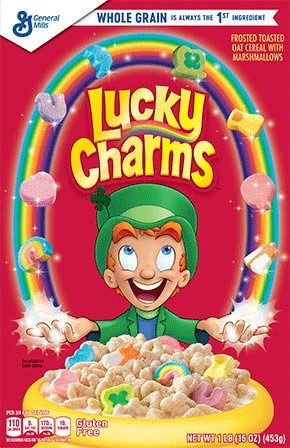Weed killer found in popular breakfast cereals in
November 29, 2018
Some of the most popular breakfast brands are now being investigated after an alarming discovery that a type of weed killer called Roundup was appearing in different cereals. A report released on August 8 noted Roundup was found in primarily oat products of several name brands.
The herbicide found in a variety of foods is called glyphosate. It is added to oat and grain crops before they are manufactured into the product that consumers buy off store shelves.
The chemical is used not only to kill weeds but also to promote drying, which allows farmers to harvest and sell their crops to companies sooner. Although weed killer in your breakfast may seem outrageous, it is commonly used in agriculture.
Contradictory to common sense, it is actually safe for humans when consumed in small amounts. Because of the harmful effects that can occur when eaten in large quantities, regulations and guidelines do exist.
Since 2008, the Environmental Protection Agency has stated that 30 parts per million is the maximum amount of glyphosate that can be used in food.
However, the Environmental Working Group says that this is outdated due to new research and findings. They state that expectations should rather be at 160 parts per billion.
The levels of glyphosate differ from food to food. General Mills’ Cheerios and Lucky Charms and Quaker Breakfast Squares varieties well exceeded all organizations’ standards of safe levels of glyphosate. The highest, Quaker Honey Nut Oatmeal Squares, was found to contain 2837 parts per billion, almost 18 times the EWG’s accepted amount.
The actual effect of glysophate is something organizations don’t agree on. Most, including the EPA, agree that the amount of chemicals found in food is not harmful enough to affect people. However, the International Agency for Research on Cancer, along with others, concluded that based on the experiment results, the foods are, “probably carcinogenic to humans.”
Customers’ opinions vary too. Some people find this news alarming, while others don’t seem to have a problem with it.
“I don’t care. I’ll still eat it,” said junior Hayden Mastud, adding, “I’m here for a good time not a long time.”
Senior Ameena Jovonovich somewhat agreed. “I want to say I’ll stop but I’ve been eating it for 17 years.”
Junior Halle Johnson disagreed. “That doesn’t make me feel good at all. I probably won’t eat it anymore,” she said.
More than 156,000 people agree with Johnson and have signed a petition started by the EWG and Just Label It that is seeking Quaker, Kellogg’s, and General Mills to remove glyphosate from their products.
Major companies have responded mostly defensively to consumer concerns and experiment results. Quaker released a statement after test results were made public saying, “…glyphosate is commonly used by farmers across the industry who apply it pre-harvest,” and denied that they utilize it during the milling process.
Kellogg’s also tried to comfort their customers by reassuring them that, “…the ingredients we purchase from suppliers for our foods fall under these limits.”
Regardless of what the brands justify, parents will remember these responses when shopping for their children. With many other product options, popular name brand item sales may drop, which may or may not encourage the companies to lower or remove the glysophate presence in their products and alleviate consumer health concerns.
